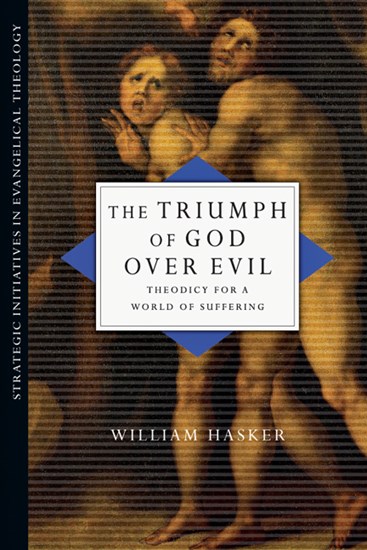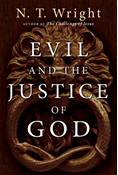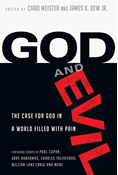
|
The Triumph of God over Evil
paperback
|
- Length: 228 pages
- Published: March 24, 2008
- Imprint: IVP Academic
- Item Code: 2804
- ISBN: 9780830828043
-
Other Retailers:
Amazon*
*affiliate partner
Noted philosopher William Hasker explores a full range of issues concerning the problem of evil. Having taken account of the current state of the discussion and squarely facing some of the most trenchant arguments marshaled by John K. Roth and D. Z. Phillips, Hasker forges a constructive answer in some depth showing why the evil in the world does not provide evidence of a moral fault in God, the world's creator and governor. A fresh and provocative contribution to the ongoing discussion of theodicy.
"This book is not simply a compilation of Hasker's earlier helpful work on the standard challenges to God's goodness allegedly posed by evil. Hasker here also offers us a thoughtful assessment of a number of recent challenges, especially those based on God's relationship with the natural order. I am especially impressed by his provocative analysis of evolution and its relationship to evil. And I feel that the type of ultimate triumph of good over evil Hasker outlines is one that rightly preserves a strong sense of divine sovereignty without diminishing our role and responsibility as humans."
"Hasker's book is a model of first-rate philosophy. Beginners are unlikely to get a better introduction to the problem of evil; Hasker is a master at summarizing and getting hold of the core of the issues at stake. Veterans will be brought up to speed on the current debate; Hasker is sure-footed and fair in his assessment of friend and foe. Through it all there shines a beautiful mind that manifests a heart on fire with honesty, compassion and robust faith."
"A serious and original work of philosophy that will engage thoughtful pastors, educated lay Christians of an intellectual bent, and advanced undergraduates in philosophy and theology, as well as professional philosophers."
"It is extremely readable, frequently quite persuasive, explicates difficult arguments clearly, and is extremely creative. It is not only a worthwhile read for the professional philosopher and theologian; it would make a wonderful text in any class on the philosophy of religion. This is one more exceptional achievement in a career that is full of the, and Hasker deserves congratulation for this fine effort."
In The Triumph of God Over Evil, Christian philosopher William Hasker provides a generally comprehensive treatment of the problem of evil and a defense of free will (or open) theism that is both coherent and eminently readable despite the complexity of the issues with which he deals.
CONTENTS
Preface
1. What Is the State of Play?
2. Does Auschwitz Change Everything?
3. Are God and Evil Compatible?
4. Can We Understand Creation?
5. Is the World Cruel?
6. Why Is Life So Hard?
7. Shouldn't God Be Doing More?
8. Can God Triumph over Evil?
Index







